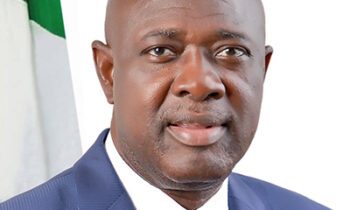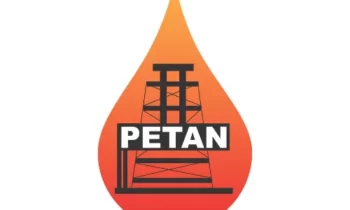
Olusola Bello
Nigeria’s President Muhammadu Buhari on Monday signed a long-awaited oil and gas bill into law despite protest against certain clauses of the law.
However some industry stakeholders have reacted to this development, saying that it is better it is done now than waiting endlessly until all the disputes arising from the bill are settled.
According to them, whatever is remaining unresolved now, there would be opportunity in future to review those clauses.
The Africa’s largest crude producer aims to attract more foreign investment to its ailing petroleum industry.
The country’s House of Representatives and Senate passed the Petroleum Industry Bill (PIB) in early July, nearly two decades after it was first introduced in parliament.
Buhari, who recently returned to Nigeria after a medical check in London, “assented to the bill Monday,” the presidency said in a statement.
It added that “the ceremonial part of the new legislation will be done on Wednesday” after the president leaves self-isolation, in line with Covid protocols following an overseas trip.
Nigeria, an OPEC member, has lured only a small fraction of global petroleum investments, long troubled by corruption, inefficiency, high production costs and security concerns.
The new law is expected to provide a clearer framework and simplify taxes and royalties for energy companies.
Nigeria currently produces around 1.9 million barrels of oil per day (bpd).
Income from oil sales accounts for almost all foreign exchange earnings and about half of government revenue, although the sector badly needs investment.
The government is worried about the pressure of time, as the world’s interest in oil and financing fossil fuel projects diminishes due to climate change.
Under the new legislation, the state-owned Nigeria National Petroleum Commission (NNPC) will be overhauled to better separate commercial and regulatory roles.
The PIB also seeks to also address demands from local communities after years of underdevelopment and environmental damage in Nigeria’s oil-producing states.
Companies will be required to invest three percent of their operating expenses into local projects — a lower figure than the five and 10 percent some representatives had asked for.
Some community leaders said they were at last compensated for the oil resources in their regions while others said it fell short of expectations.
Eddy Wikina, former managing director of Treasure Energy Resources and also former External Relations Manager with Shell Nigeria Exploration and Production,(SNEPCO), he said: “Those who were unsatisfied with the 3% issue will have to live with the implications for now. It will be senseless to start fighting now that it has been signed. They’ll have to wait till opportunity comes for review.
Also Diran Fawibe, Chairman and Chief executive officer of International Energy Services Limited has said that it is better to make do with what is available now and do the necessary review in future. But we must move fast before Nigeria loses every investment that is to come to the oil and gas industry. Remember that investors are no longer looking in the direction of fossil fuel but renewable. So we must act fast.
Also reacting to the signing, a Professor of International Law and Diplomacy, Akin Oyebode, faulted the allocation of three per cent operating expenditure of oil firms to host communities.
Oyebode, who featured as a guest on Channels Television’s Politics Today, believes such a percentage amounts to nothing compared with the sufferings of the people of the affected areas.
“I think we have to recognise that what we really have are oil-bearing areas, they are not oil-producing (but) areas which bear oil, and the relationship between the international oil companies and the oil-bearing communities needs to be straightened out,” he said on Monday.
“Three per cent is a pittance for those who suffer the incumbrances of producing oil. The concomitant effect of ravage of the environment, and then the fact of the unpleasantness of heat coming from fires, cancer and other things ravaging people inhabiting the area, need to be compensated for.”
The professor was analysing how the recent signing of the Petroleum Industry Bill (PIB) into law by President Muhammadu Buhari would affect the nation, especially the people in the oil-bearing communities.
He stressed the need for authorities to put into critical consideration the health condition of the people and the hardship they face – as a result of oil spills and other factors.
While Oyebode described the presidential assent to the Act as a step in the right direction, he recommended further amendments of the act as one of the ways to address the concerns of the affected communities.
“We all agree that the oil-bearing areas are the geese that lay the golden eggs, so they have to survive, and they have to be cushioned and defended from the vagaries of oil production,” he said. “Trying to smuggle in people over host territory, oil pipelines pass, I think it is being clever by half.”
“We must be able to separate issues. It is taking such a long time to have the PIB, so we should not throw away the baby (as people say) with the bathwater. So, it is a fine place to start to see whether we need further amendments of the PIB going forward in order to make progress,” the legal expert added.
The Petroleum Industry Act provides a legal, governance, regulatory and fiscal framework for the nation’s petroleum sector, the development of host communities, and related matters.
It was initially passed by lawmakers in the Senate and House of Representatives chambers of the National Assembly on July 15 and 16 respectively.
President Buhari assented to the act a month after the lawmakers gave the approval.





